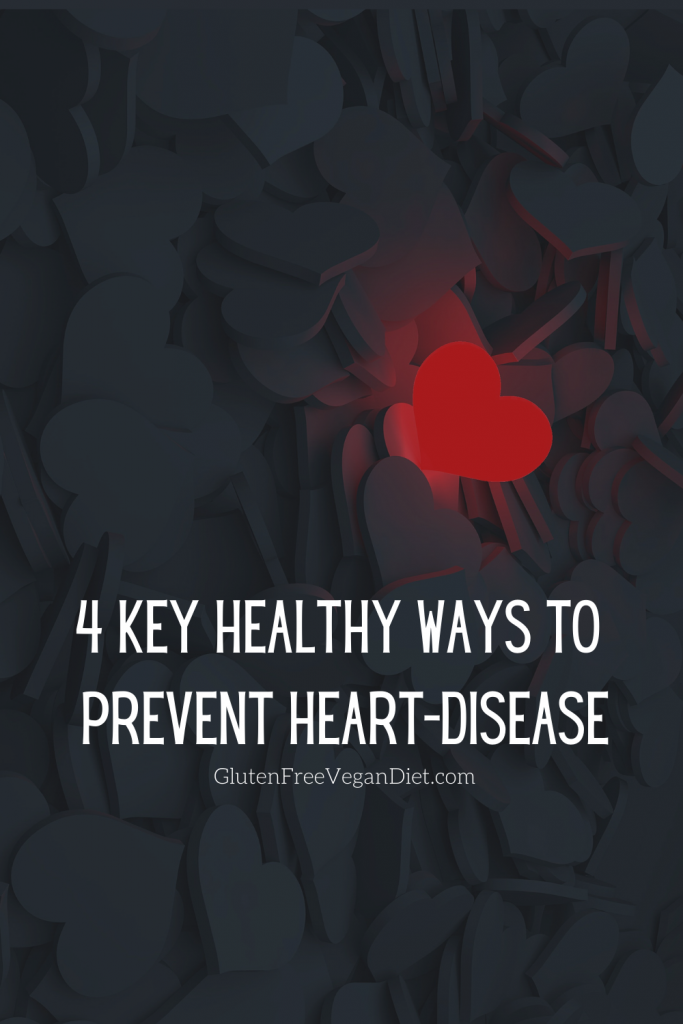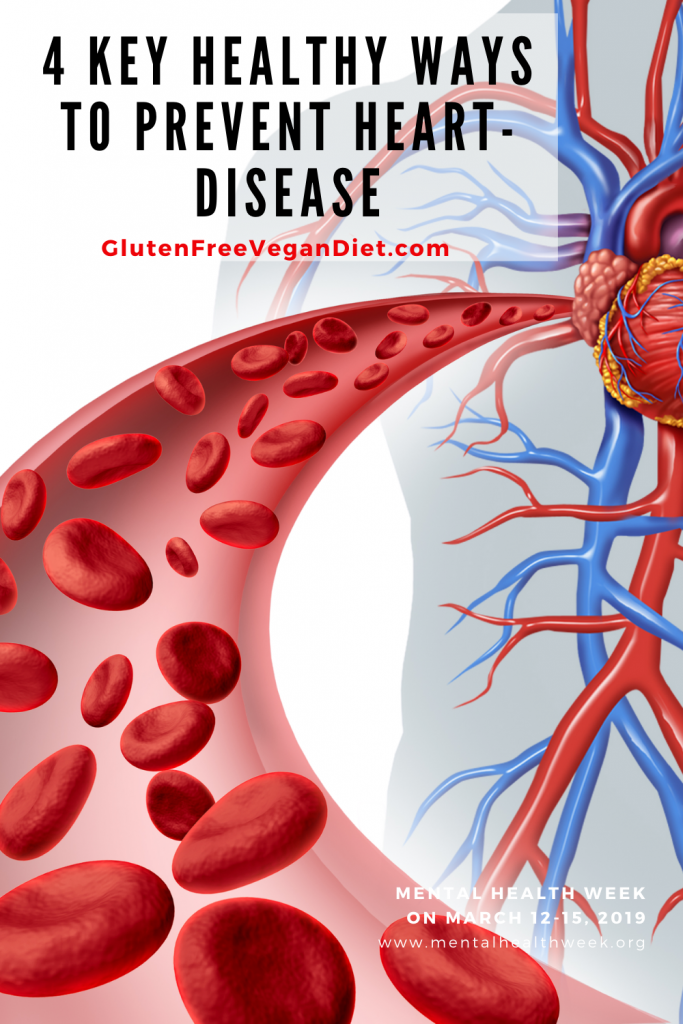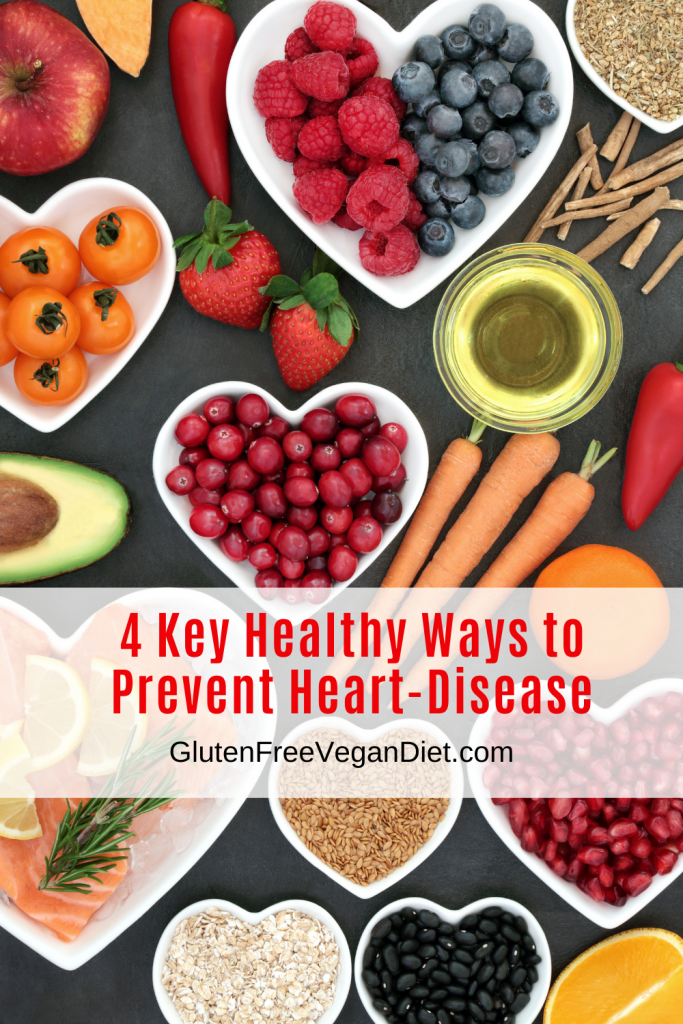Heart Disease, or Cardiovascular Disease, is a collection of health conditions where your blood vessels which lead to your heart have narrowed or become blocked by plaque. Sadly, this is a way too common health issue for far too many people.
There are different kinds of heart disease like blood vessel diseases, heart rhythm problems, and congenital defects, but generally when we say heart disease in this context we’re really referring to Cardiovascular Disease (CVD).

How this works is when fat, cholesterol, and other things build up in your arteries, you experience Plaque buildup. As more and more plaque builds up, your heart has to work harder and harder just doing its job.
CVD is a problem experience by roughly 6.5 million Americans that are over the age of 20, and it is one of the leading causes of death in developed countries such as the US.
The good news is, there are 4 key healthy ways to prevent heart disease and you can even help to reverse damage done by heart disease if you take this seriously and remain dedicated to following the plan. It’s a simple as:
• Get a handle on your blood pressure
• Eat a healthy diet
• Limit unhealthy habits
• Get enough sleep
If you happen to have a family history of high blood pressure or if you’ve recently been diagnosed with high blood pressure, it’s time to get serious and get those numbers down. The target numbers for your blood pressure are 120 over 60. The top number of your blood pressure is your systolic pressure, and the bottom number of your blood pressure is your diastolic pressure. I’ll save the long explanation of what these mean individually, my point is to get your blood pressure (and keep it) in the 120/60 range.
You need to know, and truly understand that your heart is the most important muscle in your body, and straining it isn’t healthy. What’s more, high blood pressure is one of the leading factors in developing Metabolic Syndrome, or Syndrome X.
Metabolic syndrome is a cluster of conditions that occur together, increasing your risk of heart disease, stroke and type 2 diabetes. These conditions include increased blood pressure, high blood sugar, excess body fat around the waist, and abnormal cholesterol or triglyceride levels
Mayclinic.org
While we’re at it, why not go ahead and take simple steps to lower all of the risk factors of developing Metabolic Syndrome today. You can do that in the following simple ways:
• Working to shrink our waistlines to less than 35” for women and 40” for men
• Raising our good cholesterol and lowering our bad cholesterol levels
• Lowering our Triglyceride levels
• Lowering our blood sugar
• Increasing our activity by getting in more movement time during the day.

The number one factor for preventing heart disease is your diet (Plant-based diets that protect your heart, 2017), but for some reason, most people play the importance of diet down to dangerously low levels and they pay for it with poor health.
The simple face is: what you eat fuels you. Your body literally gets its fuel and moves from what you consume through your diet. Unfortunately, many of us live in a fast food society where we think it’s okay to abuse our bodies, and our hearts because we want to believe heart disease is “curable.” Actually, nothing could be further from the truth.
If you’ve known anyone with heart disease (or have it yourself) you’ve likely heard of various surgeries for treatment. One of those is bypass surgery. Bypass surgeries build in and add ways to bypass arteries. They don’t clear out existing damage they merely find a way around it.
I must let you know, mortality rates among heart patients raises to between 60% and 80% after only 8 to 10 years for those who’ve had bypass surgery. 8-10 years is a good deal of time, but it’s not as long as most of us would like.
Now back to the point of this article: Your Diet.
When we say “diet”, we aren’t talking about whatever weight loss, restricting, fad diet you might be following. We mean your overall, life long eating habits. Your diet is a culmination of your eating choices throughout your whole life. Stop and think about that for a second. What you’ve eaten ALL through your life takes a toll (or not) on your heart health.
Don’t wait until you are in your end years to seriously think about what you eat.
Studies have shown that a plant based or even vegetarian diet is markedly healthier for your heart than a diet which consists mostly of animal proteins (Glynn, 2013). I know many of you just cringed when you read that.
Other very unhealthy habits like smoking also greatly diminish your body’s ability to perform at heart healthy levels. And let us know forget how your overall physical condition will affect your heart. Why do you think trainers, gym rats, and health experts tell you to get enough cardio exercise, and why so many of those treadmills are in your local gym. Back and leg day may be what you want to do, but cardio is essential to your longevity.
When have you ever heard anybody say that getting enough couch time will improve heart health? If they did, chances are it was a big joke because sitting around on your couch, watching TV, sitting at your desk at work, and generally not moving is an unhealthy habit that needs to be broken as badly as a smoking habit.
Besides more activity and less smoking and bad food, alcohol consumption is another unhealthy habit you must eliminate from your diet for optimal heart health. The most recent Dietary Guidelines for Americans points out that alcohol is okay in moderation. This doesn’t mean a delusional moderation. This means actual moderation like just 1 glass of red wine with dinner a night.

Finally, it’s important to get enough. Get enough:
• Sleep
• Cardio healthy exercise
• Water
• Laughter
• Time with your dog (or cat for you cat people like me)
Okay, so you might be laughing about the “time with your dog”. It may not be the official recommendation for ultimate heart health, but happiness is as important to heart health as is sleep and exercise.

